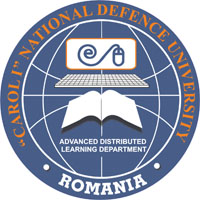HOW DOES TECHNOLOGY SUPPORT INTELLIGENCE ANALYSTS’ TRAINING?
HOW DOES TECHNOLOGY SUPPORT INTELLIGENCE ANALYSTS’ TRAINING?
Author(s): Ovidiu Moşoiu, Iulian MartinSubject(s): Education
Published by: Carol I National Defence University Publishing House
Keywords: intelligence; technology; interoperability; training
Summary/Abstract: This article explores the main aspects of using technology and new methods for improving traditional training of intelligence analysts. In a global environment characterized by an unprecedented acceleration of change and an increasing degree of complexity, all members of the intelligence analysis community need the processing capacities updated with relevant scientific benchmarks, and based on learning experiences, they need the new interoperable technologies, in which more institutions or public authorities are involved. Interoperability technologies give to intelligence analysts the possibility to play a key role in shaping the processing capacity of organizations, in order to enable seamless interaction with other public authorities and clients. This article explores the main aspects of using technology and new methods for improving traditional training of intelligence analysts. In a global environment characterized by an unprecedented acceleration of change and an increasing degree of complexity, all members of the intelligence analysis community need the processing capacities updated with relevant scientific benchmarks, and based on learning experiences, they need the new interoperable technologies, in which more institutions or public authorities are involved. Interoperability technologies give to intelligence analysts the possibility to play a key role in shaping the processing capacity of organizations, in order to enable seamless interaction with other public authorities and clients. This article explores the main aspects of using technology and new methods for improving traditional training of intelligence analysts. In a global environment characterized by an unprecedented acceleration of change and an increasing degree of complexity, all members of the intelligence analysis community need the processing capacities updated with relevant scientific benchmarks, and based on learning experiences, they need the new interoperable technologies, in which more institutions or public authorities are involved. Interoperability technologies give to intelligence analysts the possibility to play a key role in shaping the processing capacity of organizations, in order to enable seamless interaction with other public authorities and clients intelligence, technology, interoperability, training.
Journal: Conference proceedings of »eLearning and Software for Education« (eLSE)
- Issue Year: 11/2015
- Issue No: 01
- Page Range: 467-475
- Page Count: 9

